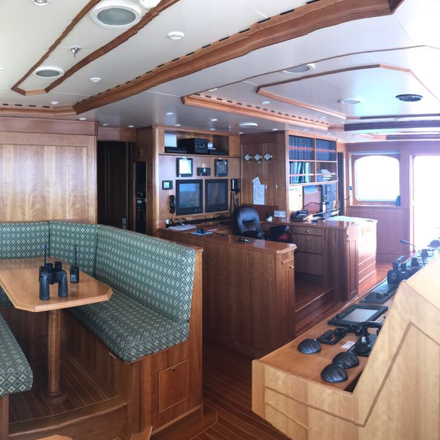Our mission is to conserve and enhance the ecology and biodiversity of our shared marine environment. FRF supports the responsible conservation of fisheries and marine science innovation and technology through research, outreach and education.
FRF Core Values
1. Focus on Science: FRF supports real-world research and connects communities and commercial enterprises with science, technology and innovation;
2. Adaptability and Practicality: FRF assists research to develop the capacity of maritime communities to introduce, anticipate and adapt to change;
3. Collaboration: FRF facilitates building partnerships between academics, commercial enterprises and communities to increase the impact of supported initiatives through participation and shared goals;
4. Education: FRF supports education and outreach initiatives to inform conservation and stewardship, to transform industries and to build knowledge systems and resources;
5. Inclusion: FRF values the diverse cultural communities and history of the global marine environment and promotes the inclusion of stakeholders in scientific research.
FRF provides a fully crewed vessel, onboard accommodation and covers all fuel costs to enable your research. M/Y Albula can accommodate up to 12 researchers. Work areas include a wet lab, large study with work areas for 8 that can host lectures, a large lazarette with wet work area, drop down swim platform, dive locker, compressor and large storage areas. There are also tenders which may be available for research use. At 11 knots, M/Y Albula has a range of approximately 6,500 nautical miles with a 20 per cent reserve.
FRF does not pay salaries to research team members, purchase equipment, pay onshore expenses nor provide additional research funding support.

1. Healthy, Sustainable Fisheries:
2. Healthy marine ecosystems:
3. Innovation and technology
4. Environmental Education and Literacy
FRF Statement of diversity, equity and inclusion
FRF does not discriminate on the basis of race, religion, colour, national origin, citizenship, age, sex, physical or mental disability, veteran status, marital status, pregnancy, childbirth or related medical conditions, parenthood, sexual orientation, gender identity, political affiliation or belief or genetic information.
FRF commits to diversity, equity and inclusion in carrying out our mission.
FRF is committed to fair and just opportunities for all persons.
FRF encourages participation that is diverse with regards to age, race, ethnicity, linguistic and national origin, gender identity, sexual orientation, disability, culture, religion, citizenship type, marital status, education level, job classification, veteran status, income, and socioeconomic status.